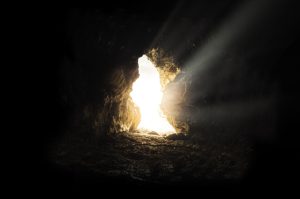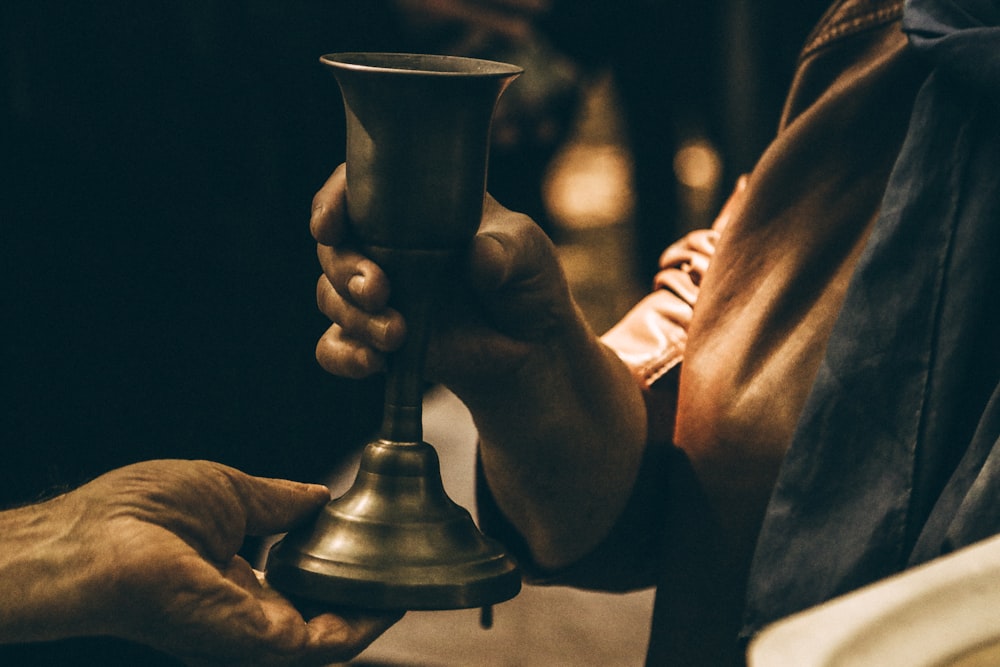We are delighted to share with you our library of resources. You can use the filter feature below to find topics most relevant to your curriculum.
The Key Events of Holy Week
The last days of Jesus' life...
What springs to mind when you hear the word ‘Easter’? Bunnies? Hot cross buns? Gooey creme eggs?
Easter is one of the most special times in the year for Christians, and very little of it has to do with chocolate!
‘Easter’ is a season in the church calendar which happens each spring. Christians use the term ‘Easter’ to refer to the festival remembering the events surrounding the end of Jesus’ life, and its new beginning.
Christians believe that, at the age of 33, Jesus died on a cross outside Jerusalem at the hands of the Romans. He was buried immediately, but then three days later his disciples discovered that his tomb was empty and claimed to have seen him, alive. Christians believe that Jesus’ death and resurrection were part of a grand plan, engineered by God himself, to bring peace between God and the people of earth.
Holy Week is the name given to the final week of Jesus’ life. It's sometimes referred to as 'the Passion.' Read more about the events of this incredible week below, and watch our films here.
The Last Supper
'When the hour came, Jesus took his place at the table with the apostles.He said to them, “I have wanted so much to eat this Passover meal with you before I suffer! For I tell you, I will never eat it until it is given its full meaning in the Kingdom of God.” Luke 22:14-16
It was the time of the Jewish Passover - the festival which remembers Moses leading the Israelites out of Egypt - that Jesus had his last meal with disciples. After a week of visiting friends around Jerusalem, Jesus wanted to share a special meal with them. At the meal, he broke the bread and called it his body. He said the wine they drank was his blood. Christians believe this was Jesus’ way of telling his friends about his death. You can read the full story in Luke 22:14-23.
Jesus’ Arrest
'Then Jesus said to the chief priests and the officers of the Temple guard and the elders who had come there to get him, “Did you have to come with swords and clubs, as though I were an outlaw? I was with you in the Temple every day, and you did not try to arrest me. But this is your hour to act, when the power of darkness rules.” Luke 22:52-53
After the meal, Jesus went to pray in the Garden of Gethsemane. He took a few of his closest disciples with him. While he was there, another of his disciples, Judas, brought Jesus’ enemies to him and they arrested him. You can read the full story in Luke 22:47-53.
Jesus' Trial
'The whole group rose up and took Jesus before Pilate, where they began to accuse him: “We caught this man misleading our people, telling them not to pay taxes to the Emperor and claiming that he himself is the Messiah, a king.” Luke 23:1-2
During the night Jesus was tried by the religious leaders for blasphemy (claiming to be God) and the Roman authorities (for stirring up the people). He was put on trial before Pilate, then Herod. By Friday morning, he had been sentenced to death. You can read the full story in Luke 23:1-25.
Good Friday: Jesus' Crucifixion
'When they came to the place called “The Skull,” they crucified Jesus there, and the two criminals, one on his right and the other on his left. Jesus said, “Forgive them, Father! They don't know what they are doing.” Luke 23: 33-34
 Good Friday is the day when Jesus died on the cross. In Roman times the worst criminals were ‘crucified’ – nailed to a cross and left to die. The Bible says Jesus was innocent and that his death was a sacrifice for people’s sins. Throughout the gospels, Jesus says that he will have to die but that his death will save many. Christians believe that because Jesus died, all of us can be friends of God. You can read the full story in Luke 23:26-55.
Good Friday is the day when Jesus died on the cross. In Roman times the worst criminals were ‘crucified’ – nailed to a cross and left to die. The Bible says Jesus was innocent and that his death was a sacrifice for people’s sins. Throughout the gospels, Jesus says that he will have to die but that his death will save many. Christians believe that because Jesus died, all of us can be friends of God. You can read the full story in Luke 23:26-55.
Find out more about the crucifixion here.
Easter Sunday: The Resurrection
'Very early on Sunday morning the women went to the tomb, carrying the spices they had prepared. They found the stone rolled away from the entrance to the tomb, so they went in; but they did not find the body of the Lord Jesus. They stood there puzzled about this when suddenly two men in bright shining clothes stood by them. Full of fear, the women bowed down to the ground, as the men said to them, “Why are you looking among the dead for one who is alive? He is not here; he has been raised.' Luke 24:1-6
 Good Friday is only half of the Easter story. The other is Jesus’ resurrection 3 days later. On Easter Sunday, the disciples visited Jesus’ tomb but found the stone covering the cave had been moved and Jesus’ body was gone. They reported seeing Jesus alive in the garden that morning, and then again at their house later that day. Christians believe that God raised Jesus to life again – a sign that Jesus was truly the Son of God and more powerful than death.
Good Friday is only half of the Easter story. The other is Jesus’ resurrection 3 days later. On Easter Sunday, the disciples visited Jesus’ tomb but found the stone covering the cave had been moved and Jesus’ body was gone. They reported seeing Jesus alive in the garden that morning, and then again at their house later that day. Christians believe that God raised Jesus to life again – a sign that Jesus was truly the Son of God and more powerful than death.
You can read the full story in Luke 24:1-12.
Find out more about the resurrection here.
The Ascension
'Then he led them out of the city as far as Bethany, where he raised his hands and blessed them. As he was blessing them, he departed from them and was taken up into heaven.' Luke 24:50-51

He walked with them for a while before blessing them and being taken up into heaven. This was the last time they would see Jesus in bodily form. You can read the full story in Luke 24:36-53,
You can find out more about the Ascension here.
To find out why these events are important to Christians today, click here.

